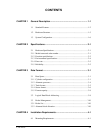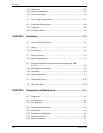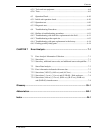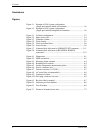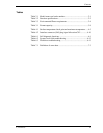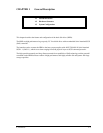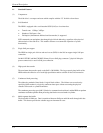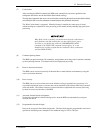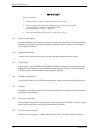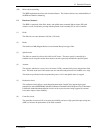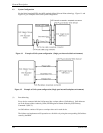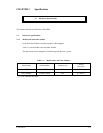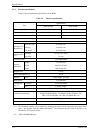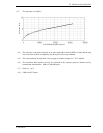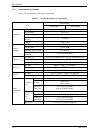
1.1 Standard Features
C141-E219 1-3
(7) Cache feature
After executing the READ command, the HDD reads automatically and stores (prefetches) the
subsequent data blocks into the data buffer (Read-ahead caching).
The high speed sequential data access can be achieved by transferring the data from the data buffer without
reaccessing the disk in case the subsequent command requests the prefetched data blocks.
The Write Cache feature is supported. When this feature is enabled, the status report is issued
without waiting for completion of write processing to disk media, thereby enabling high speed write
processing.
When Write Cache is enabled, you should ensure that the cached data is
surely flushed to the disk media before you turn off the drive's power.
To ensure it, you should issue either the SYNCHRONIZE CACHE
command or the STOP UNIT command with specifying “0” to the
Immediate bit, and then confirm that the command is surely terminated
with the GOOD STATUS.
(8) Command queuing feature
The HDD can queue maximum 128 commands, and optimizes the issuing order of queued commands
by the reordering function. This feature realizes the high speed processing.
(9) Reserve and release functions
The HDD can be accessed exclusively in the multi-host or multi-initiator environment by using the
reserve and release functions.
(10) Error recovery
The HDD can try to recover from errors in the disk drive using its powerful retry processing. If a
recoverable data check occurs, error-free data can be transferred to the initiator after being corrected
in the data buffer. The initiator software is released from the complicated error recover processing
by these error recovery functions of the HDD.
(11) Automatic alternate block reassignment
If a defective data block is detected during read or write the HDD can automatically reassign its
alternate data block.
(12) Programmable data block length
Data can be accessed in fixed-block length units. The data block length is programmable, and can be
specified at initializing with a multiple of four within the range of 512 to 528 bytes.



